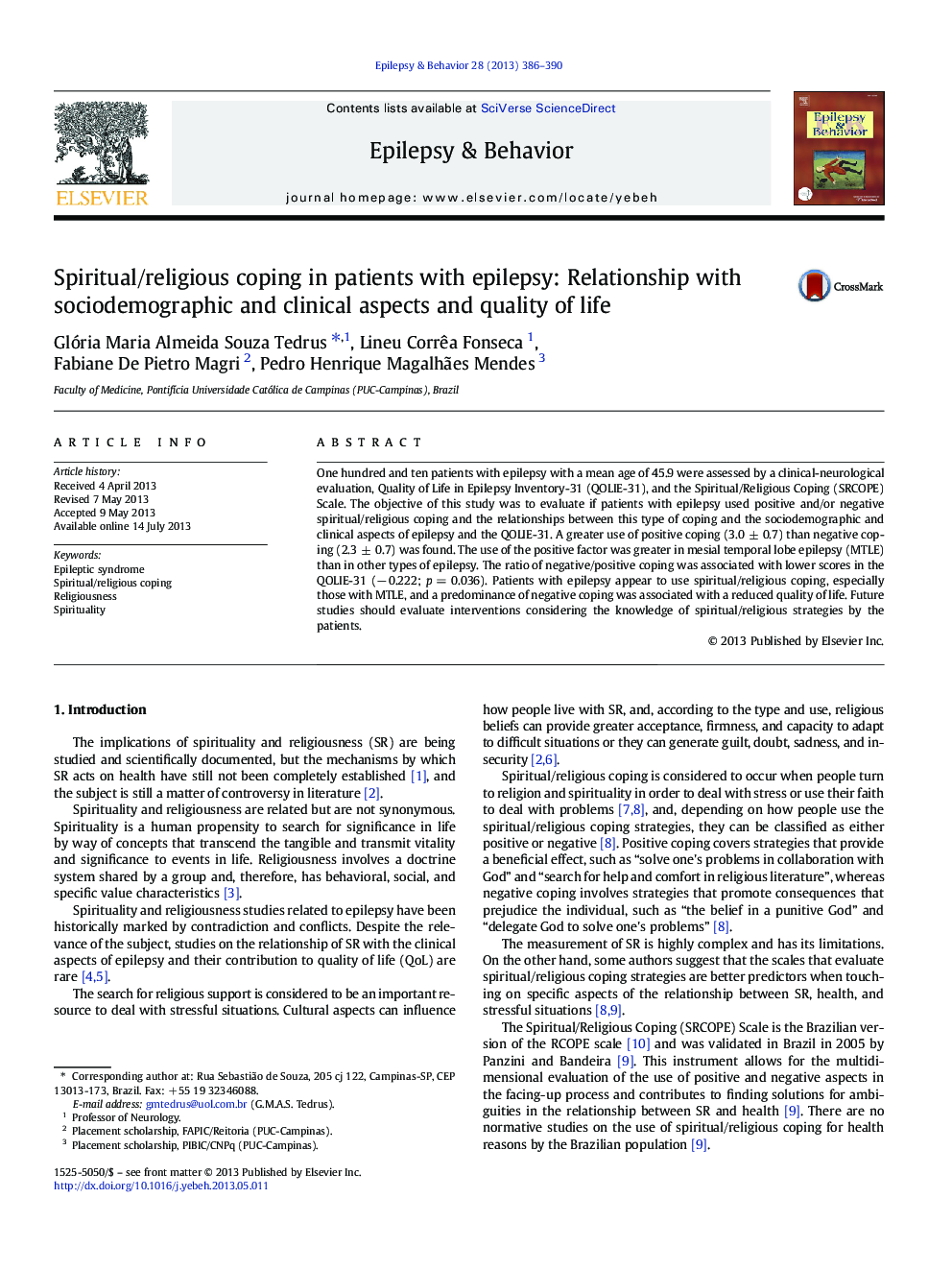| Article ID | Journal | Published Year | Pages | File Type |
|---|---|---|---|---|
| 6012724 | Epilepsy & Behavior | 2013 | 5 Pages |
Abstract
One hundred and ten patients with epilepsy with a mean age of 45.9 were assessed by a clinical-neurological evaluation, Quality of Life in Epilepsy Inventory-31 (QOLIE-31), and the Spiritual/Religious Coping (SRCOPE) Scale. The objective of this study was to evaluate if patients with epilepsy used positive and/or negative spiritual/religious coping and the relationships between this type of coping and the sociodemographic and clinical aspects of epilepsy and the QOLIE-31. A greater use of positive coping (3.0 ± 0.7) than negative coping (2.3 ± 0.7) was found. The use of the positive factor was greater in mesial temporal lobe epilepsy (MTLE) than in other types of epilepsy. The ratio of negative/positive coping was associated with lower scores in the QOLIE-31 (â 0.222; p = 0.036). Patients with epilepsy appear to use spiritual/religious coping, especially those with MTLE, and a predominance of negative coping was associated with a reduced quality of life. Future studies should evaluate interventions considering the knowledge of spiritual/religious strategies by the patients.
Related Topics
Life Sciences
Neuroscience
Behavioral Neuroscience
Authors
Glória Maria Almeida Souza Tedrus, Lineu Corrêa Fonseca, Fabiane De Pietro Magri, Pedro Henrique Magalhães Mendes,
